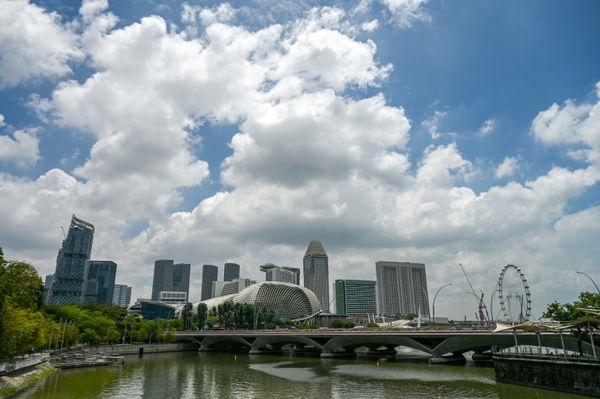
Queensland Department of Health investigators are struggling to prosecute sunbed operators claiming the devices are “safe” because inspectors do not have the necessary UV detection equipment, and because services are being advertised on private social media accounts.
Guardian Australia called and messaged several wellness clinics and individuals operating out of their homes throughout New South Wales and Queensland, confirming that businesses are offering “collarium” treatments with rates starting at $25 for 20 minutes of use. Some of these businesses did not explicitly advertise collariums on their social media pages or websites but did offer collarium bookings over the phone.
Cancer Council Queensland’s prevention and early detection senior manager, Sharyn Chin Fat, said “a collarium is essentially a rebranded sunbed that emits both UV radiation and red-light wavelengths”. These are sometimes advertised as “pink light’” beds, and sessions of up to 40 minutes are offered.
They are also often marketed as “safe” or “legal” alternatives to sunbeds, also known as solariums, because they primarily emit UVA radiation. Due to skin damage and cancer risk, commercial solariums are banned in all Australian states and territories except the Northern Territory, where there are no commercial tanning businesses.
“It’s claimed they [collariums/pink or red light beds] improve skin health by stimulating collagen, while also providing the user with a tan,” Chin Fat said.
“However, UVA doesn’t stimulate collagen production. It actually breaks collagen down, which leads to more rapid skin ageing. While UVA is less likely to cause an immediate sunburn, UVA radiation can also still penetrate deep into the skin, contributing to long-term skin damage, and increasing an individual’s cancer risk.”
A Queensland Health spokesperson said the department “is currently organising the purchase of quantitative UV radiation detection equipment, which will help us investigate these facilities and ascertain whether their operation constitutes a breach of the legislation”.
Queensland Health has received 89 reports of solariums, collariums and pink light systems being used in violation of solarium laws since 2022. No prosecutions have been made to date against any of them.
Guardian Australia understands most complaints about solarium-related services in Queensland are about those advertised on private or closed-access social media accounts, which are difficult for health inspectors to investigate. Access to these accounts is often by invitation only, so inspectors are unable to issue a search warrant.
A spokesperson for the Environmental Protection Authority in NSW said in 2024 it had received 32 reports about alleged illegal solariums including collariums.
“All reports are assessed and we undertake a range of regulatory and investigative actions and compliance campaigns to deter unlawful operators,” the spokesperson said. “This includes inspections, advisory letters, formal warnings, penalty notices and prosecutions.”
Prof Anne Cust, a cancer epidemiologist and deputy director of the Daffodil Centre, said people should be weary of any advertising claims that collariums are “low UV” and therefore “safer”.
“When solariums were legal, there were certain limits around how much UV radiation was allowed to be emitted from them,” she said.
“And when these devices were tested, they were well above those limits. You can’t trust claims about how much UV radiation is being emitted from them. Any UV radiation can be harmful.”
Chin Fat agreed: “There is no such thing as a safe sunbed or a safe tan.
“We don’t support the sale or use of any radiation-based tanning device.
“We strongly advise against using these devices due to the significant risks they pose when it comes to skin cancer. We’ll continue to advocate for them to be taken off the market to protect the health of Queenslanders.”







